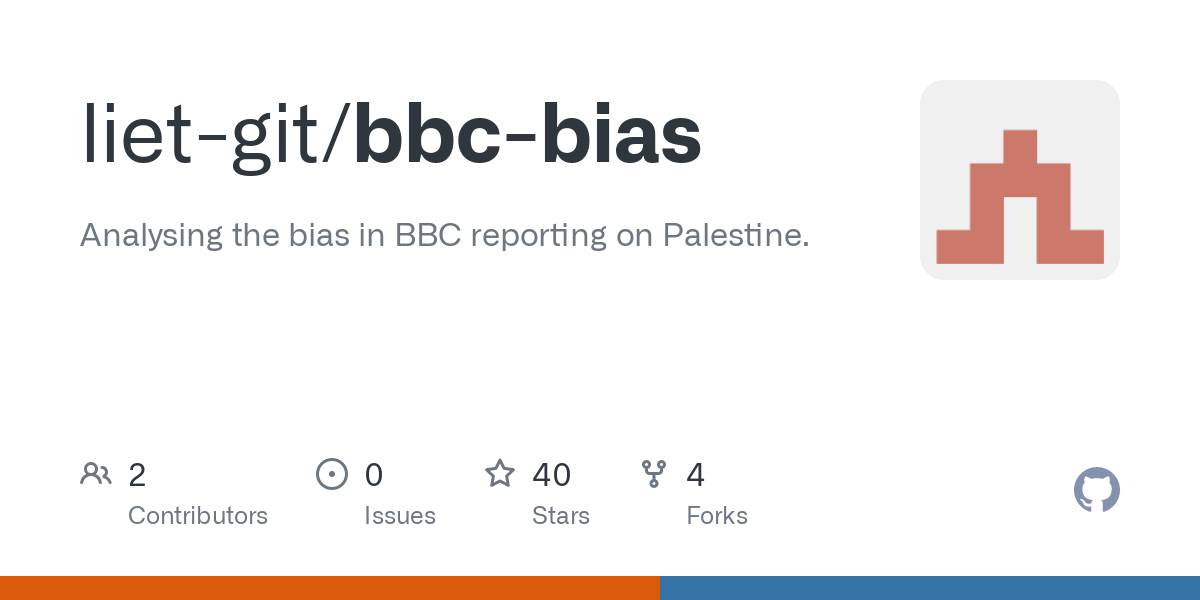Overview
This work aims to shed light on bias in BBC reporting on Palestine in a way that is both transparent and reproducible. We analyzed a total of 600 articles and 4000 livefeed posts on the BBC website between October 7, 2023 and December 2, 2023 in an attempt to surface the systematic disparity in how Palestinian and Israeli deaths are treated in the media.
The pipeline of the study is as follows:
We obtained source articles and livefeed posts from the BBC website by selecting relevant topics (see below for full list) and
We parsed the individual sentences using the Stanford CoreNLP natural language processing
Using the results from step 2, we identified sentences with mentions of death and manually tagged each one of them as referring to Palestinians, Israelis, neither or both. None of the tagging was performed automatically.




A hypothesis is “I think x is true” or “x will happen if I do y.” It is a conclusory statement based on existing knowledge that then has to be proven and is one of the first things you learn to do in science. Asking “what happened to x” or “what is x” is not a hypothesis, it’s an open-ended inquiry. While both are useful, the hypothesis is specifically part of the scientific method. You’re proving or disproving smaller conclusions to answer a broader open-ended inquiry.